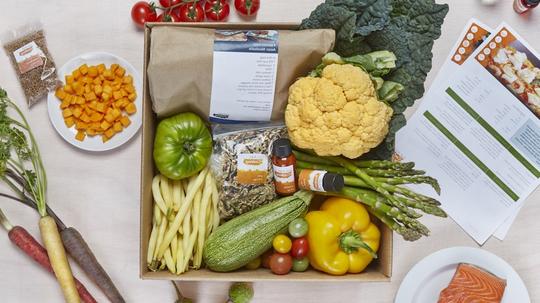
Just Add Cooking, the five-year-old Boston startup that shut down in November, had a name that was also a manifesto for its mission—narrowing down the feeding-related efforts of customers to a single task, while the company would take care of ingredients and recipes with its subscription-based kits. After just adding cooking, customers were supposed to eat "in 30 minutes or less," as the company still advertised on its website 30 days after closing doors.
As it turned out, some subscribers to the service weren't completely on board with the idea of adding cooking to their busy lives, because they didn't think that it was just as easy. That's one of the reasons why Just Add Cooking had to shut down, according to former CEO Katerina Cronstedt.
"The meal kits, when they were introduced, really offered a way to simplify and add the convenience of cooking at home," Cronstedt, who joined Just Add Cooking in October 2017 as CMO, said. "However, they still don't really solve the problem of... convenience."
Cronstedt took the reins from Jan Leife as Just Add Cooking CEO in June this year. During her time at the company, she heard from customers that they still wanted to cook at home, but they wanted something "quicker" and "easier" to prepare. Their convenience level was somewhere below 30 minutes of cooking, but above microwave meals and takeout.
"We've heard so often: 'We loved your product, but some weeks, I just don't have time to cook.'"
"We've heard so often: 'We loved your product, but some weeks, I just don't have time to cook,'" Cronstedt said. "That was one of the things that Just Add Cooking was trying to meet, but was having a tough time."
After an initial hype, many meal kit startups went through tough times. In the space, competition became fierce and both customers and investors started to lose appetite for carefully-packaged kits. In the last five years, 150 new meal-kit companies were founded, some of which tried to differentiate themselves by catering to narrow niches—like New England residents, in the case of Just Add Cooking.
Players in this overcrowded market became more cautious after witnessing one of their most-illustrious members -- Blue Apron -- going from unicorn status to worst-performing major U.S. IPO of 2017. Investors' wallets were suddenly less accessible, as their interest pivoted from meal kits to food delivery: last year, around $274 million was invested in 18 meal-kit companies, down from 25 deals worth $308 million in 2015, according to data provider PitchBook.
As for financing, Just Add Cooking suffered as well. After a couple of seed rounds that delivered less than $1 million, the company tried to raise funding with a crowdfunding campaign. But they only brought home $42,000 out of a goal of $300,000—not even close to experiment with different ways to offer flexibility to customers.
Cronstedt thinks she can continue her mission to bring simplicity and flexibility to the kitchen with her new role. She's now a vice president of operations at Suvie, a Cambridge-based company working on a new kitchen robot. "I think that Suvie is adding the component that is missing: you get not only the smart kitchen robot, but also the refrigerator that you can load whenever you want."
Her final takeaway? "I think whoever is going to offer flexibility is going to be the winner in the meal delivery market."








